#they were supposedly on the bestseller list
Text
I need more people to read/listen to the Black Prism books by Brent Weeks
#nobody talks about them#they were supposedly on the bestseller list#the magic system is dope#and lots of political intrigue#but i cant share shit wuth people who havent read#its so complicated#so many things are spoilers
0 notes
Text
I Think He Knows
Roy Kent x Teacher!Reader
Warnings: Language, flirty Roy being flirty
0.9k words
Teach Me Tonight Masterlist

“I’ll take a burger,” you murmured as you handed the waitress your menu. Once she was gone, you had no choice but to look at the bearded man smiling across from you.
“A burger,” he repeated teasingly. “I like a woman with an appetite.”
Damn, you wished you had a menu to stare at. Or a waitress to pay attention to. Or a telly playing a football match behind his head that could distract you. But no, the only place for your eyes to land was Roy Kent.
As if he could hear the way your mind was racing, he cocked his head at you. “Is this alright? Having lunch?” He shrugged. “I just figured… I don't fucking know.”
His nerves were finally showing through all the confident teasing he’d been doing since he extended the invitation; funnily enough, that helped you to relax a bit. “No, it’s nice,” you assured him. “It was really sweet of you to invite me.” Despite your own anxiousness, you grinned. “You’re letting me pay though, right? It’s my turn.”
The laugh that came out of his mouth had your chest feeling warm. “I already fucking told you, you’re not paying for this. If you want to pay, you can invite me out.”
“Fine,” you laughed, pretending the idea of asking Roy Kent out wasn’t sickeningly exciting.
From there, the conversation was pretty easy. You swapped stories about managing a football team and a classroom, laughing at how ridiculously similar the jobs could be. He told you all about his career, his relationship with Phoebe, the books he liked. You couldn’t help feeling embarrassed that you were surprised by how well-read he was; he listed off classics and bestsellers alike, gushing about plot twists that had his jaw on the floor. You countered with your own favorites, as well as stories about your time in uni, feeling like they were inadequate to his tales about representing his country on the pitch. By the intense look on his face though, you’d think that the time your old roommate and you drunkenly sang in a Tesco and got banned from it was just as fascinating as international football.
When the check came, you didn’t bother trying to grab it; instead, you simply smiled at Roy and offered a soft thank you. He winked at you as he slipped the waitress his card and leaned across the table after she disappeared.
“Phoebe told me you have a field trip on Thursday. The zoo, was it?”
You nodded. “Yeah, it’ll be pretty fun. Just need a couple more chaperones though.”
“How about me?” His face was earnest, as if he was begging for the opportunity to go on a primary school field trip.
“You want to come?” you asked with a laugh. “You want to get on a bus with two dozen eight-year-olds and go to the zoo on a hot day and make sure no one falls into the lion’s enclosure? Really?”
His smirk was intoxicating. “You’ll be there, right?”
“Supposedly,” you teased, praying you didn’t look too thrilled at the thought of him joining your class at the zoo. “But honestly, Coach, it’s alright. You really don’t have to-”
“I want to,” he assured you quickly. “I like the idea of helping you out.” The waitress returned with his card, which he slipped into his wallet as he stood. “Ready then?”
No. You weren’t ready. You had no desire to end lunch, to say goodbye to Roy Kent, to have to wait until the next morning drop-off to see that devilish smile that made your entire body purr. But you couldn’t say that; so instead you walked side by side back to the school, chatting about the girls’ team and how much they loved playing for Roy.
Instead of parting ways in the parking lot, Roy walked you to your car, watching the way you fiddled with your keys, the way you often did when he was around. Probably a nervous habit, he decided. A cute nervous habit.
“Thanks again for coming to the match,” he murmured, leaning in close. “The girls loved seeing you. You should make sure you come to more of our games.” He smirked. “As long as your boyfriend doesn’t mind losing you to me and the girls on Saturday mornings.”
He savored the way your eyes widened. “Oh, no,” you all but shouted. “I, um, don’t have a boyfriend.”
Roy raised his eyebrows at you. “No? I thought I saw a picture of you and some guy on your desk. The two of you looked pretty damn cozy.” He shrugged. “Figured that was your fella.”
You shook your head adamantly. “No, no, that’s a friend of mine. Ms. Bowen suggested it, to try to fend off the creepy dads,” you explained, realizing how silly it all sounded.
“Fend off the creepy dads?” Roy repeated, not hiding his grin as you nodded. He leaned against your car, the picture of flirtation. “Well, fuck, it almost worked on me.”
The mischief in his eyes had you speaking before you could think. “I’m happy it didn’t.”
Holy shit holy shit holy shit.
His smile widened. “Yeah?”
Immediately losing any sense of boldness you’d had, you shrank away from him, averting your gaze. “Thank you again. For lunch.” You unlocked your car, desperate for something to distract you from those brown eyes. “You really didn’t have to treat.”
Roy opened your door for you with a casual shrug. “Just means you have to invite me out sometime. Then maybe I’ll let you pay.”
You slid into the driver’s seat, willing yourself to look up to that gorgeous face. “Maybe I will,” you hummed. “Have a good weekend, Coach.” With that, you closed the door and offered him a small wave, one that held the smallest hint of flirtation.
It was enough to have Roy Kent grinning like an idiot for the rest of the day.

Taglist:@infinetlyforgotten @gothicwidowsworld@taytaylala12@amieinghigh@klaine-92@misshall14@rosesheerio@goose-101@gee72sstuff@alainabooks143@lwritesstuff@hayden-maximoff@optimisticsandwichgladiator@veryprairieberry@scott-mccall-could-lift-mjolnir@jaymum@shakespeareanwannabe@axelsagewrites@kidd3ath @brainscabs @v-nest@just35yrsandtrying @idk1234567 @ohwauwdoritos @wearethecanadians@deliriousfangirl61@laukora1030@its-a-show-stoppin-number @blue-bujo @ohwauwdoritos @seatbacksandtraytables @amieinghigh @libsybum
#roy kent teach me tonight#roy kent x teacher!reader#he's here he's there he's every fucking where#roy kent#roy kent x reader#roy kent fanfic#roy kent fic#roy kent fanfiction#roy kent fluff#ted lasso fanfiction#ted lasso fic#ted lasso fanfic
201 notes
·
View notes
Text
Of banned books and "banned" books
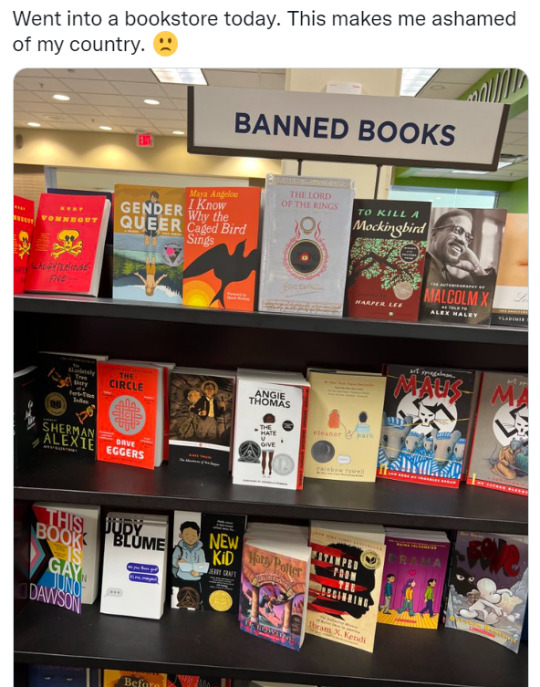
If you went into a bookstore and saw the books being openly sold, that's strong evidence that they're not banned. (Source for illustration.) This bookshelf is a performative contradiction. You should be ashamed of taking it at face value, instead.
I spent half an hour searching and trying to chase down exactly where The Lord of the Rings was supposedly "banned", because it looked like a particularly implausible entry. Digging into citations and chasing claims, I found a game of telephone and a gradient of weasel words. An initial bombastic reference to "Banned Books" would link to a list of "Banned and Challenged Books" where the subheader negotiates down to "attempts to remove books from schools, libraries and universities" and eventually bottomed out in the American Library Association posting this fucking shit:

That is not a ban. That is not even vaguely resembling a ban. That's closer to a Florida Man headline. New Mexico Man Burns Bookshelf. Also they spelled it wrong, which underlines how much of a middle-of-nowhere, who-gives-a-fuck town this is.

It is not the only bullshit entry. In the case of Maus, the supposed "ban" amounts to the fact that the McMinn County Board of Education voted to remove it from the eighth-grade curriculum. This is slightly less retarded because it at least features an official organization, but curricula don't have infinite space and it's still deceitful to use the word "ban" to describe a local curriculum change. The book remains legal to buy, sell, own and read.
I have read the meeting notes of the Board where the motion passed, and they were explicit that they will still be teaching the topic of the Holocaust, but looking for a different book to use. This did not stop circlejerking j*rnalists from crying about Holocaust denial and book bannings, fabricating a Streisand Effect from a non-ban until Maus became a national bestseller. Unlike being banned, being "banned" is very profitable!
When you hear "Banned books", it may be useful to ask "Banned where?" (By whom? When?)
Reductio ad absurdum: I hereby ban all books from my bathroom. It's for your own good, to prevent water damage. Every book is now "banned" for a sufficiently low value of "banned".
1K notes
·
View notes
Text

YOU DID THIS @ragingcitrustree
Ben Shapiro: I could not be more excited to speak with Max Anders—well, as Max knows. Before the show, we talked for an hour about interesting things. We should have caught that on tape. But now we’re actually going to get the chance to do it live. Max new book, if you haven’t bought it yet—everybody on the planet has bought this book. I was walking through the office today; we didn’t have a copy in the office; the person at the front desk had a copy of your book just sitting on her desk. 14 Words: How To Strengthen and Empower Our Country’s Blood and Soil . A fantastic book, obviously topping all the bestseller lists, all over the world. Max, thanks so much for joining the show. I really appreciate it.
CEO of Medhall, Max Anders: Thanks for the invitation.
BS: Obviously your prominence has just blown up in the last year and a half. We were talking before the show about why that is and why there are so many people suddenly very angry about you. I noticed there was an article in the Brockton Bay Gazette suggesting that young, angry white males—you are now their leader. So congratulations.
MA: Oh, yes.
BS: I wanted to ask about that: why do you think that, number one, your profile’s become so big of late? And number two, why do you think it is that so many members of the left are so angry about that? Why are they characterizing people who listen to you as "angry" and "enraged young white men"?
MA: Well, we can look at the characterization to begin with. I think it speaks to the pathology of the radical left, instantly. They’re absolutely incapable of viewing the world except through group identity terms. If someone comes out and disagrees with them, then they have to characterize them by their fundamental group attribute, whatever that happens to be. Maybe it’s gender, because that’s a favourite, or maybe it’s race. So "angry young white man"—there we go: sexist, ageist, and racist all at once. They’re angry, young, white, men. Well, it has to be that way, if you’re going to play the leftist game, like New Wave does, because that’s the only way that you can look at the world. It’s strange that they would attempt to make them reprehensible on the grounds of race, age, and sex, since that’s precisely what they stand against, hypothetically. But if you can’t make your enemy reprehensible along some dimension, then you have to contend with them seriously. And so if I’m not an alt-right fascist like Hitler or supposedly Allfather, which was how I was characterized in Canada—because the radical leftists can’t even get their bloody interests straight: "he’s like Hitler or Allfather." There’s no obvious difference between them, right? It’s just another attempt to pillory, as far as I can tell. I think that it’s dreadful. I really think it is.
There was an article written by, I believe, The New York Review of Books, which was just republished in The Globe and Mail, talking about the emergence of hyper-masculinity, and how I was somehow responsible for that or contributing to it, like Mussolini or Crowley Brothers. I read that and I thought, "ok, so what are you doing? I see: you’re conflating masculinity and hyper-masculinity at the same time. Then you’re virtue signally by being against hyper-masculinity. But really, what you’re trying to do is bring down whatever it is that’s masculinity. And what masculinity is, in this frame, is something like competence." And so it’s part of the radical leftists’ general war on competence as well, which I think is one of the most pernicious elements of the culture wars—the dissolution of hierarchies; the assuming that every hierarchy has to be based on power and serve the needs of your group, whatever that happens to be; that there’s no such thing as competence. And then the other thing that’s reprehensible about it—because that’s not enough—is that it’s just wrong.
So I was in L.A. about a month and a half ago. I was downtown L.A, and downtown L.A. is kind of rough, because you know what hero runs that city. I was wandering around with my wife, and this young guy pulled a car up beside me and hopped out. He was kind of a stylish looking twenty-one-year-old Latino guy. No Alexandria shirt but even then I was like, “oh no, here comes trouble”. But he was all excited. He asked me who I was, and I told him. That’s what he had presumed, so he was kind of excited about that.
He said, "I’ve watched all your lectures, and it’s really helped me. I’ve been straightening out my life and trying to get my room clean"—he laughed about that—"developing some aims and trying to tell the truth. I’ve really fixed up my relationship with my father." Then he said, "wait, wait. Just wait a minute." I thought, "sure." So he went back in the car, and he got his father out of his car, and he came over with his dad. They had their arms around each other. He said, "look, we’ve really improved our relationship," and they’re both smiling away. That’s… Man, if you’re going to target me for that, just go right ahead.
BS: Yeah. It sounds real "white supremacist."
#This made my eyes bleed#99% of this is actual dialogue by the way#parahumans#wildbow#ward#worm#parody#Kaiser#max Anders
26 notes
·
View notes
Note
hey sorry if im relitigating something you want to forget but i saw you arguing in the notes of the fanfiction pacing post and wanted to ask what you thought the difference between fanfiction and published fiction is on a technical level? as someone who both writes fanfiction and is a published short story author, i definitely think there are fundamental craft differences that affect the pacing, and there's definitely a different type of skill involved in either thing, but i'm curious to hear the other side.
There is no difference because being a published author has very little to do with talent and skill, and everything to do with how much money your idea will make the publishers. Considering you go through a traditional publishing house, that is. That's why it's impossible to go through a publishing house these days without having 100,000 followers on TikTok and IG. That's an exaggeration by the way.
So, really, the only difference between being a published author and fanfic author is the platform where your work is published and who owns the copyright agreement. Because if getting a book published really had anything to do with skill there wouldn't be so many bad books making the bestsellers' list or being made into movies -- IE The Godfather or The Devil Wears Prada or Twilight.
If you think fic authors lack skill it's because a lot of them are children with little to no writing experience and who are experimenting with fanfiction to learn to write better. Then you have people who don't speak English as a native language or who -- like me -- are neurodivergent or have other mental health issues or learning disabilities that sometimes effect grammar and overall skill level. Holding yourself above those people is not only pretentious but also racist, xenophobic, and ableist -- and that's not something that only supposedly published authors are guilty of. Their fans are guilty of it, too, like Anne Rice's fanbase since it's her batshit paranoia that began the stigma against fic authors in the first place.
If you think you're above fic authors cause you've been published you're wrong.
I've had two works published in local publications in my hometown (under my deadname). One was in my local newspaper when I was in sixth grade and the other was in my high school's yearly art journal or whatever. An anthology, I guess, it could be called. Both of them were original works -- one was a poem and the other was a short story inspired by my best Xmas cause back then I was really drinking up the evangelist Kool-Aid (tbf I was twelve at the time). But these days, I don't even write fanfiction so what do I know, right?🙃
15 notes
·
View notes
Text
Books: The history of Scotland's influence in the world and the world's on Scotland
Rosemary Goring
Sat, 30 July 2022
In this article:
Murray Pittock Scottish academic

The Battle of Glen Shiel in Scotland, during the Jacobite Rebellion, 10th June 1719. (Photo by Hulton Archive/Getty Images).
Scotland: The Global History – 1603 to the Present
Murray Pittock*
REVIEW BY ROSEMARY GORING
Such was people’s desire to learn about Scotland’s past that, at one point in 1999, Tom Devine’s History of the Scottish Nation outshone Harry Potter on the bestseller lists. Historian Murray Pittock, who is Bradley Professor of Literature at the University of Glasgow, cites that remarkable fact towards the end of his own broad survey. While it remains to be seen if his work reaches such dizzy heights, Scotland: The Global History certainly deserves a wide readership.
Beginning with the Thirty Years’ War, shortly after the Union of the Crowns under James VI and I in 1603, it stretches to the present day. Offering a sweeping overview of the major events and currents that have formed modern Scotland, its core thread is “the paradoxical and powerful yet partial nature of Scotland’s ability to project itself as an international actor” when it was no longer an independent nation.
Whether it’s on matters of governance or finance, education or culture, industry or business, every strand of this assessment is viewed through the prism of sovereignty, or its diminishment. From the late middle ages through the Covenanting era and the Clearances, to the rise of Empire, industrialisation and its decline, the issue of Scotland’s independence and political integrity is to the fore. In Pittock’s hands, what followed after the Union of Parliaments in 1707 is as severe a test of the concept of nationhood and centralised state as a political theorist in a laboratory could devise.
“Scotland is a country, but not a state,” he writes; “one of the longest-lived of all global nations yet hardly counted by some to be a nation at all.” Among the oldest of European countries, its borders have barely changed since the middle ages, with the exception of Berwick-upon-Tweed, which switched hands countless times, and a few miles of wild and ungovernable “debatable lands” in the Scottish borders.
There are many pitfalls to be avoided when writing Scottish history and, as Pittock draws together themes that touch on several of his previous works, he is keenly aware of them. Too many political and cultural analysts treat this country as innately special, a one-off case unparalleled elsewhere. Adopting this tack can be undignified, sounding boastful, self-pitying, or both.
Yet, as Pittock points out, since in many ways Scotland has been an exceptional case, or at least has had a very different experience from the rest of the UK, he cannot avoid treating it as distinctive. What he signally does not do, however, is wear either rose-tinted spectacles or historical Ray-bans, where the refrain is of the nation’s poverty, oppression and mistreatment.
To read his chapters on Scots’ involvement in the slave trade, for instance, is to feel profound shame and disgust at the depths of merchants’ complicity and greed. “Scots were heavily implicated in chattel slavery”, he writes. The slave trader Alexander Allardyce of Dunnottar was said to have sold as many slaves as the population of Aberdeen. On one occasion 100 residents on Skye were kidnapped, to sell as “indentured servants” in America, while in Aberdeen – clearly a dangerous place in the 18th century – 500 boys were abducted in the years 1740-5 and subsequently sold. The same fate awaited captured Jacobites.
So much for the trumpeted Scottish ethos of egality and fraternity, and supposedly innate democratic tendencies. From the pages of this book Scots’ ability to prosper at the expense of others rises like the smell of drains. Across the Empire, from India to the Caribbean to the plantations of America’s deep south, Scots heartlessly enriched themselves. Back home, meanwhile, many of their fellow countryfolk were toiling.
Pittock’s project is as much intellectual as historical. Discussing the concept of Scotland the Brand, as promulgated by the likes of Sir Walter Scott, James Macpherson and Robert Burns, he places the brand’s origins in the failed Jacobite rebellions: “Romantic Scotland thus preserved the bravery and grandeur of the defeated politics of its native dynasty and sovereignty in a displaced and fossilized form”.
Thereafter, the British Army co-opted fearsome Highland soldiers, taking this once destabilising force within Great Britain and turning it into an icon of British military prowess.
Scotland: The Global History is told around the complications of surrendered political agency, and the compromises, sorrows and grievances this entailed. While the Union of 1707 and the subsequent dominion of the British Empire, into which many Scots gladly bought, was to the country’s economic advantage, the loss of self-governance and national distinction was a sore that has festered in some quarters ever since.
Amid his scrupulous recounting of a vast swathe of history, Pittock offers fresh insights. “It was to be no coincidence”, he writes, “that the decade the British Empire ended was the first decade in which Scottish nationalism achieved significant support”. It is as if money and opportunity were sufficient compensation for loss of patriotic soul; but when that treasure chest disappeared, minds belatedly turned to upholding Scotland’s heritage and inheritance.
As far back as 1792, the journalist and pamphleteer John Thomson Callender wrote, “To England we were for many centuries a hostile, and we are still considered by them as a foreign, and in effect a conquered nation.” Some would agree with that sentiment today. Sentimentality, however, is one thing Scotland does rather too well. As Pittock acknowledges, bringing the story through the 20th century’s wars and into the present day, “support for ‘indyref2” or “our precious Union” is increasingly expressed in forms as passionate as they are limited.
Everything about Scotland: The Global History is directed towards the political settlement we currently face, and in what direction that might turn next. Although sympathetic to the nationalist cause, he is not uncritical. A great deal of what he outlines is of crucial significance in helping delineate how Scotland has reached its current position, and assessing how best to move forward.
While in places his writing can be academic and chewy, the engine behind this history is running at full throttle, and its momentum carries the reader on at speed. Whatever side of the constitutional argument one stands on, this is an invigorating assessment. It might not outsell Harry Potter, but as the provisional date of Indyref2 approaches, it should be regarded as an essential tool in the debates that will soon be raging.

Prof Murray Pittock of Glasgow University 🎓
*Murray G. H. Pittock MAE is a Scottish historian, Bradley Professor of Literature at the University of Glasgow and Pro Vice Principal at the University, where he has served in senior roles including Dean and Vice Principal since 2008.
Yale University Press (28 July 2022) Language English, Hardcover 512 pages
#1 in History of Scotland
📕 The engagement in which Scotsmen and women have had an impact on the country and its material resources. This is not a romantic image of Scotland as a place of “bagpipes, mountains and tartan” but came to be the same Scotland that provided the finance, technology, and innovation that drove the steam age. An intellectual book that makes you want to see more about Scotland 🏴📚
#UniversityofGlasgow #MurrayPittock #Scotland #ScottishAcademic #HistoryofScotland
2 notes
·
View notes
Text
Murder in the Tea Leaves (A Tea Shop Mystery) by Laura Childs #Review / #Giveaway - Great Escapes Book Tour @BerkleyMystery

Murder in the Tea Leaves (A Tea Shop Mystery)
by Laura Childs
About Murder in the Tea Leaves
Murder in the Tea Leaves (A Tea Shop Mystery)
Cozy Mystery
27th in Series
Setting - South Carolina
Publisher : Berkley (March 5, 2024)
Hardcover : 304 pages
ISBN-10 : 0593200985
ISBN-13 : 978-0593200988
Digital ASIN : B0C777ZCXN
It’s Lights, Action, Murder as tea maven Theodosia Browning scrambles for clues in this latest installment of the New York Times bestselling series.
When Theodosia Browning reads the tea leaves on the set of the movie, Dark Fortunes, things go from spooky to worse. Lights are dimmed, the camera rolls, and red hot sparks fly as the film’s director is murdered in a tricky electrical accident.
Or was it an accident? Though the cast and crew are stunned beyond belief, nobody admits to seeing a thing. And when Theodosia’s friend, Delaine, becomes the prime suspect, Theodosia begins her own shadow investigation. But who among this Hollywood cast and crew had murder on their mind? The screenwriter is a self-centered pothead, the leading actress is trying to wiggle out of her contract, the brand new director seems indifferent, and nobody trusts the slippery-when-dry Hollywood agent.
Between hosting a Breakfast at Tiffany’s Tea, a Poetry Tea, and trying to launch her own chocolate line, Theodosia doggedly hunts down clues and explores the seemingly haunted Brittlebank Manor where the murder took place. And just when she’s ready to pounce, a Charleston Film Board member is also murdered, throwing everything into total disarray. But this clever killer will go to any lengths to hide his misdeeds as Theodosia soon finds out when she and her tea sommelier, Drayton, get caught up in a dangerous stakeout.
INCLUDES DELICIOUS RECIPES AND TEA TIME TIPS!
Dollycas's Thoughts
Theodosia Browning's Indigo Tea Shop is hopping hosting their regular customers but also hosting special teas like a Poetry Tea and a Breakfast at Tiffany’s Tea. The shop has also been hired to cater the craft services for the spooky movie set of Dark Fortunes. Theodosia even gets in on the action when she steps in to read tea leaves as a fortune teller. But her acting career comes to an abrupt halt when the lights go out and electrical sparks fly as the film's director is killed. Was it a freaky accident? or was it murder? The cast and crew are shocked but claim to have seen nothing because the lights were out.
When the death is ruled a homicide and Theodosia's friend, Delaine finds herself at the top of the list of suspects Theodosia starts an investigation of her own. Then the killer strikes again and Drayton and Theodosia find themselves hot on their trail. They need to catch the killer before the tables are turned and they are fighting for their own lives.
______
I enjoy getting back to historic Charleston, South Carolina, to catch up with Theodosia, Drayton, Haley, Miss Dimple, Riley, Detective Tidwell, Delaine, and the lovable Dallbrador, Earl Grey. The characters Ms. Childs has created are so engaging and aside from chasing down killers feel very true to life. Even after so many close brushes with death, Theo is always ready for anything and she usually has Drayton right by her side trying to talk her out of her latest scheme to catch a killer. Haley, Miss Dimple, and now Haley's cousin Beth Ann handle the tea shop while Drayton and Theo follow the clues. Riley isn't happy when Theo gets involved but he is never going to change her. Earl Grey is quite a dog and will protect his person in any way he can.
I love the way the author sets a scene. Her descriptions create vivid pictures. The movie was being filmed in "dilapidated" supposedly haunted Brittlebank Manor. Theodosia just has to check the place out from top to bottom to see if the legends about the place are true and readers get to see things through her eyes. She also describes Deliane's goofy fashion show, all the fabulous special teas including the decor, teas, food, and at the Breakfast at Tiffany’s Tea what everyone is wearing. We travel along on her runs and walks through the city with Earl Grey and to her and Drayton's homes. We also get to tag along as she tries to solve a murder or two. It is so easy to escape to all these places in the pages of this story.
Theodosia has a knack for questioning people in her quest to get to the truth. She also has a way are getting herself and Drayton in some situations that can quickly turn deadly. Ms. Childs has written a mystery with many twists and turns and what turns out to be a surprising motive. A motive Theo starts to put together a little too late but it leads up to an exhilarating and at points hilarious chase and an even funnier takedown. The ending was a little abrupt but there were no loose strings.
Book 27, Murder in the Tea Leaves is a hit! I was completely entertained from beginning to end and even a little breathless after the last few pages. Bring on Book 28, Peach Tea Smash, has a release date of August 6, 2024! I can't wait! You will find Murder in the Tea Leaves on my Best Reads of 2024.
Your Escape Into A Good Book Travel Agent
About Laura Childs
Laura Childs is the New York Times bestselling author of the Tea Shop Mysteries, Scrapbook Mysteries, and Cackleberry Club Mysteries. In her previous life she was CEO/Creative Director of her own marketing firm and authored several screenplays. She is married to a professor of Chinese art history, loves to travel, rides horses, enjoys fundraising for various non-profits, and has two Chinese Shar-Pei dogs.
Laura specializes in cozy mysteries that have the pace of a thriller (a thrillzy!) Her three series are:
The Tea Shop Mysteries – set in the historic district of Charleston and featuring Theodosia Browning, owner of the Indigo Tea Shop. Theodosia is a savvy entrepreneur, and pet mom to service dog Earl Grey. She’s also an intelligent, focused amateur sleuth who doesn’t rely on coincidences or inept police work to solve crimes. This charming series is highly atmospheric and rife with the history and mystery that is Charleston.
The Scrapbooking Mysteries – a slightly edgier series that takes place in New Orleans. The main character, Carmela, owns Memory Mine scrapbooking shop in the French Quarter and is forever getting into trouble with her friend, Ava, who owns the Juju Voodoo shop. New Orleans’ spooky above-ground cemeteries, jazz clubs, bayous, and Mardi Gras madness make their presence known here!
The Cackleberry Club Mysteries – set in Kindred, a fictional town in the Midwest. In a rehabbed Spur station, Suzanne, Toni, and Petra, three semi-desperate, forty-plus women have launched the Cackleberry Club. Eggs are the morning specialty here and this cozy cafe even offers a book nook and yarn shop. Business is good but murder could lead to the cafe’s undoing! This series offers recipes, knitting, cake decorating, and a dash of spirituality.
Laura’s Links: Website – Facebook
Purchase Links – Amazon – B&N – Kobo – Bookshop.org – PenguinRandomHouse
The Rest of the Series
Coming August 6, 2024
The Scrapbooking Mysteries
The Cackleberry Club Series
Click on the covers for more information or to order by Amazon.
TOUR PARTICIPANTS - Please visit all the stops.
March 5 – Mystery, Thrillers & Suspense – SPOTLIGHT
March 5 – #BRVL Book Review Virginia Lee – SPOTLIGHT
March 6 – Angel's Book Nook – SPOTLIGHT
March 6 – Christy's Cozy Corners – SPOTLIGHT
March 7 – Escape With Dollycas Into A Good Book – REVIEW
March 7 – Hearts & Scribbles – SPOTLIGHT
March 8 – Ascroft, eh? – AUTHOR GUEST POST
March 8 – Sapphyria's Book Reviews – SPOTLIGHT
March 9 – Sarah Can’t Stop Reading Books – REVIEW
March 10 – Maureen's Musings – SPOTLIGHT
March 11 – The Plain-Spoken Pen – REVIEW
March 11 – Baroness Book Trove – REVIEW
March 12 – The Avid Reader – REVIEW
March 12 – Celticlady's Reviews – SPOTLIGHT
March 13 – Reading, Writing & Stitch-Metic – AUTHOR GUEST POST
March 13 – Cassidy's Bookshelves – SPOTLIGHT
March 14 – MJB Reviewers – SPOTLIGHT
March 15 – View from the Birdhouse – REVIEW
March 16 – The Mystery of Writing – SPOTLIGHT
March 17 – Cozy Up With Kathy – REVIEW
March 18 – Literary Gold - SPOTLIGHT
a Rafflecopter giveaway
Have you signed up to be a Tour Host?
Click Here to Find Details and Sign Up Today!
Want to Book a Tour?
Click Here
Disclosure of Material Connection: I received this book free from the publisher. I was not required to write a positive review. The opinions I have expressed are my own. Receiving a complimentary copy in no way reflected my review of this book. I am disclosing this in accordance with the Federal Trade Commission’s 16 CFR, Part 255: “Guides Concerning the Use of Endorsements and Testimonials in Advertising.”
Read the full article
0 notes
Text
Ok one more thing on the Squeecore nonsense
People who are going along with it largely just come across as not well read tbh
Because since the podcasters gave no real clear examples of what the fuck they were talking about, I’m kinda forced to put in my own assumptions of what they would consider “squeecore,” and while I could think of several that would probably fit, I also can immediately think of just as many, if not more examples of books that definitely don’t fit.
Like of course the most popular books are gonna be lighter and less literary, that’s the case for literally every genre, but look like one degree deeper than the NYT bestseller list for fucks sake and I promise there are plenty of different kinds of SFF
fuck for all their complaining about the Hugos, it was only a few years ago the NK Jemisin won three fucking years in a row for the most un-squeecore book trilogy imaginable. Yet this is supposedly something that has been going on at least since Scalzi won for Redshirts in 2013?
Like maybe you just don’t like certain kinds of books and the general public is more center-left than we would like, and there isn’t actually a conspiracy against you and your books.
#god I’m sorry that this is bothering me so much 😅#but like they’re like so close to having an actual point here#but turn it all into personal vendettas and gripes so it makes the space to talk about the actual point worse#because it’ll seem like your siding with these clowns
18 notes
·
View notes
Text
Publishing vs. Marketing Category
Okay, so book and writing community on twitter tends to have these flare ups of convos about books being shelved wrong and authors pointing out reasons such as their gender, or race, or even the content of their books being say, fantasy for them being placed on the wrong shelves in libraries and bookstores. Now, there is a human bias element to this. There are librarians and book buyers for stores who do see a female fantasy author and assume they must be YA no matter the content. Plus, everyone and their mother tagging things incorrectly on twitter or shelving badly on Goodreads.
Let’s dive into the INDUSTRY side of this though. The industry has two different and at times clashing categorizations of books, there are the publishing categories and there are the marketing categories. And while some, specifically some age targets and genres the marketing and the publishing categories will align, there are others that the age target and marketing target may be under the same “name” technically and then their aims completely clash.
Yes, I’m mostly talking about YA. (Urban Fantasy and Paranormal Romance can fall in here too.)
So, the publishing category of Young Adult, is pretty much what you’d expect. Young Adult should have protagonists of the age groups of 12 to 18, and most likely dealing with “coming of age” themes and “finding their place in the world” and quite possibly “being the chosen one.” I personally find theme categorization for age groups to be really limiting. But I read Brian Jacques from third grade on... so. .. yay fighting mice. (And I was into Star Wars at grade 7, like Timothy Zahn Star Wars. I am not the typical reader.) It’s just something to be aware of if you are querying agents because agents deal with publishing categories and not marketing categories. (And agents have biases too. Like, come on, Unicorns should not be limited to MG. How dull. Agents though will look for anything to clear stuff out of their slush pile, I guess.)
Young Adult publishing category books range between 40K words on the low end and 80K words on the high end. I’d aim for 50K words depending on age group. Remember, YA readers especially read upwards in age groups. So you’re 12 year old is going to be reading about 15 year olds and your later YA readers will have aged out into the adult category of books (supposedly. This is where MARKETING categories become a thing. More in a second.)
New Adult is not a thing. Until it gets a spot in bookstores. It is officially not a thing. Querying New Adult will get you nowhere. Don’t bother.
So, you’ve written your MS and it hits what you think are all the Adult markers, from age of the protag, to theme, to having ‘adult’ content such as sex, drugs, and violence. (Violence is so weird b/c we’ve normalized violence while keeping sex taboo. So, if your book has sex, it might be considered Adult, more than if your book has violence. Even then... marketing categories.) You’ve queried it as adult. You’ve got it through an editor and it’s been pitched to a publisher and they’ve picked it up and your marketing materials come out. And they, meaning the cover, and the blurb, all read Young Adult in their style and tone.
And this may be confusing because you wrote an adult book, why are they marketing it to YA? Like A Crown of Thorns and Roses? (Fae court romance is... err, dead on arrival btw.)
It’s because YA is also a marketing category which no longer equals the age group category. And there are some very popular book series you can thank for this, Twilight, Hunger Games, Vampire Academy, and Divergent are among them. These books were not only popular among teens. They were popular among their mothers. So, publishing quickly pivoted from YA being this age group category with certain things, to a marketing strategy to try and keep the attention of the moms of the teenagers with sex, and love triangles, and I dunno, forbidden romance. By the time ACOTAR came out, publishing decided maybe they should try for this college age, New Adult category so they could market these “sexy fantasy” type books to older readers and get the sex out of YA. So, they used ACOTAR to try and make New Adult happen as a marketing category for book buyers. It didn’t work. Because no one, like with Harry Potter, wants to split a book series across 2 sections. (And lo and behold Young Adult was kind of born because they didn’t want to keep the later HP books in the children’s section.)
And because it didn’t work, YA is now a mess. Because they still don’t want to give up those sweet, sweet, mommy dollars.
There is one very large aspect of publishing the author has no control over. Their marketing. Especially, their covert marketing done by the publisher. Covert marketing is the type of marketing indies salivate over, b/c covert marketing is basically the publishing house deciding where on the bestseller list this book is going to be, how much advertising it gets, does it get a fancy book launch, what is the advance of the author, when is it going to be published and will it have competitors in its genre that same month, who among the reviewers gets to read it, the style of the book cover, and more importantly, what, where, and how much book shelf space it gets in stores. Is the cover turned out? Is it at the front of the store? Does it get it’s own display? Or is it in the “new releases display?” Which book buyer at the chains gets to see it. How do Librarians get a hold of it and which ones? Because the buyer of say, romance, is not the buyer of young adult. The Adult scifi/fantasy book buyer is going to be different than say, mysteries. Same for librarians! There are more than one librarian in your system choosing your books! It is very important who your book gets to be put in front of, what they think of it to how it is going to be received and pushed on bookshelves. There was a very infamous romance buyer of a major chain store who refused to buy POC romances because she thought they didn’t sell.
If your book chain buyer, refuses to buy fantasy books or scifi books by female authors b/c they think they won’t SELL. Then, the publisher feels like in order to get your book to sell, they have to put it into a marketing category where it will sell, Young Adult. Because what do most of those “Young Adult” books have in common, women writers. (Urban Fantasy was almost an exception to the rule on SFF gendered authors. Then... UF became dead on arrival as they thought the market was glutted and yeah. Good luck on getting an UF published, you’d be better off writing paranormal romance. Same type of setting, different genre rules.) It’s not about the content of your book, or the age of your protag, or the theme of your book at that point, it is “What will make this book sell.” Publishing is an industry where profit is not a dirty word. Their job is to make your book sell and if they think it will sell better as YA, they will pitch it as YA.
Even if the book is written for, uses language appropriate for, and has content really intended for adults.
Be aware that Young Adult scifi is a very, very rare buyers market. For some reason, publishers don’t think they can market it? Dystopian yes. Scifi... no. So, if your YA is scifi, like either rewrite for adult or keep your eye open for that very rare time they’re willing to TRY and publishing YA scifi. Or, publish indie. (Dystopian is also I think DOA.)
Is this confusing? Absolutely! Because there are plenty of readers out there who are in the adult category, who don’t keep up with publishing trends, and don’t realize if they want vibrant fantasy books, they may have to look in the YA section of their bookstore. They’re adults. They want vibrant fantasy adult books. And I say fantasy because you see this happening MOSTLY with fantasy. It happens with other genres too, but it is a huge problem in fantasy due to, well, the combination of publishing trends (white, older, male) and the human bias. So, many times, if you want that cool marketed as adult fantasy book not written by a white older male, you are going to have to order it through the ‘zon because you aren’t going to find it most likely on your bookstore shelves. (Science Fiction is another kettle of fish. Outside of some very established authors, it’s not really publishing. It’s a very small category outside of indie. Like, Military SF was a thing for a bit in indie! Just... yeah. Sigh.)
Conclusion: Publishing category does not always equal marketing category. Even if the publishing category and marketing category are named the same thing. And it’s probably not going to change until something major happens that the big four are FORCED to change their current publishing and marketing methods. (Yeah, big FOUR now. Scary.) It’s a complicated system with the author having the most at stake and the least amount of control (and often the least amount of pay outside of agents.) I mean, when Disney of all corporations, doesn’t want to pay Alan Dean Foster his legal royalties for a book they acquired when they got Star Wars, there is a PROBLEM in the system.
Just be aware if you are going into this publishing game. I cover this and more in my FREE PDF “I Finished a Book, Now What? A Tongue in Cheek Guide to What Happens Next.” Everything from editing types to querying to social media for authors.
It’s available for download on my website. https://ginny0.wordpress.com/books/
#writing tumblr#writing community#writrblr#publishing#traditional publishing#fantasy#science fiction#publishing categories#marketing#marketing categories#writing advice#writing tips
14 notes
·
View notes
Text
Also, there is a lot of talk right now about people using a string of keywords, or the wrong keywords and categories, to get their books into Amazon’s bestseller lists. Which I find sort of funny, if only because 1) that must piss off readers who go in expecting what is listed and then get something else. The reviews must be lovely. and 2) I’ve been using the keywords like AO3′s tagging system, because Amazon’s categories are so limited for what I need (like Beings have to be listed as gay, because Amazon has basically gay, lesbian, and general as categories and is weird about queer stuff in their regular lists. Then gay romance. Then I need to list fantasy, but I can’t list fantasy and contemporary or urban fantasy with those at the same time. So I end up putting all of that in the keywords and... sigh).
Anyway, it’s just funny that I immediately thought the keywords were like AO3 tags, which is probably not the case at all but oh well.
(For anyone curious, supposedly putting a string of keywords together means Amazon makes your story searchable by all the words in the string, so you get more bang for your buck, so to speak. Though I always assumed readers could search by those terms, so you had to be vague, yet precise. A string probably does work but... I’m fucking busy.)
6 notes
·
View notes
Text
2019 in books
The year’s contenders for the good, the bad, and the rest. I used to make a list of the ten best books I read all year, a tradition encouraged by my mom as far back as high school, but out 2019′s twenty-six mediocre offerings it didn’t really come together. Instead I’ve decided to break my ‘honorable mentions’ category into three subsections that I hope you’ll enjoy. In order of when read, not in order of affection:
Honorable mentions [books I liked; 3+ star material]
The Fifth Season by N.K Jemisin was given to me as a Christmas present last year, and I wasn’t sure how much I would like it since I don’t really do high fantasy. Rules need not apply; I loved the world building and narrative structure, and the characters were so much better than I’m used to even when their arcs seemed familiar at first glance. I guessed what was going on with the formatting maybe a little too quickly, but even then it was emotionally engaging and I was eager to keep reading and see what happened next. Haven’t devoured a book that way in years.
The Periodic Table by Primo Levi has been on my list for a while; as a memoir told through short stories it’s hit-or-miss, but so worth it. I especially loved getting to read his early attempts at fiction, and the chapter Phosphorus regarding his first real job as a chemist in 1942 (his description of his absolute disgust at having to work with rabbits, the feel of their fur and the “natural handle” of the ears is a personal favorite.) This excerpt is one I just think about a lot because it’s full of small sweet details and so kindly written:
“[my father] known to all the pork butchers because he checked with his logarithmic ruler the multiplication for the prosciutto purchase. Not that he purchased this last item with a carefree heart; superstitious rather than religious, he felt ill at ease breaking the kasherut rules, but he liked prosciutto so much that, faced by the temptation of a shop window, he yielded every time, sighing, cursing under his breath, and watching me out of the corner of his eye, as if he feared my judgement or hoped for my complicity.”
Slowing Down from Mouthful of Birds by Samanta Schweblin is a one-page short story, but I’m including it because it’s the best in the book and one of the better stories I’ve read in general. I won’t spoil it for you since it’s more poem than anything else (and you can read the whole thing here.)
A Short Film About Disappointment by Joshua Mattson deserves to be lower in the order because it’s like. Bad. But I couldn’t help but have a self-indulgent kind of love for it, since it’s a book about white boy ennui told through movie reviews. It definitely gets old by the end (one of those things where you can tell the author lost steam just as much as his leading man), but parts of it are so well-written and the concept clever. 80+ imaginary movie reviews and psychosomatic possession by your traitorous best friend.
The Gone-Away World by Nick Harkaway has one of the greatest twists I’ve ever read in a novel, and no that’s not a spoiler, and yes I will recommend it entirely on that basis. It does its job as a multi-year sci-fi epic; reminds me a lot of Walter Moer’s early stuff in that it’s a bit Much(tm) but still a good mixture of politics and absurdity and absolute characters. Tobemory Trent was my favorite of the ensemble cast (but also boy do I wish men would learn how to write women.)
My Only Wife by Jac Jemk is a novella with only two characters, both unnamed, a man describing fragmented memories of his wife. It has me interested in Jemck’s other writing because even though I didn’t love it she writes beautifully; reading her work is like watching someone paint. The whole thing has a very indie movie feel to it (no scene of someone peeing but there SHOULD be), which I don’t think I’ve experienced in a story like this before and would like to try again.
Mentions [books I really wanted to like but my GOD did something go wrong]
Bad Blood: Secrets and Lies in a Silicon Valley Startup by John Carreyrou is the most comprehensive history we have of Elizabeth Holmes and her con-company Theranos. It’s incredibly well-researched and absolutely fascinating, but veers into unnecessary pro-military stuff in one chapter (’can you believe she tricked the government?’ yes i can, good for her, leave me alone) and carries an air of racism directed at Holmes’ partner and the Pakistani people he brings onto the company. Carreyrou works for WSJ so I don’t know what I expected.
Circe by Madeline Miller was fun to read and goes down like a glass of iced tea on a hot day, but leaves a bit of an unpleasant aftertaste. It says a lot of things that seem very resonant and beautiful but ultimately ring hollow, and the ending is too safe. Predictable and inevitable.
I was also bothered about Circe’s relationships with Odysseus and Telemachus as a focal point, not because they’re father and son (Greek mythology ethics : non-committal hand gesture) but because it’s the traditional “I used to like bold men but now I like... sensitive men.” Which as a character arc feels not unrealistic but very boring. You close the book and realize you’re not nine and reading your beat-up copy of Greek Myths, you’re an adult reading a New York Times Bestseller by a middle aged straight white woman.
Reservoir 13 by Jon McGregor could have been the best thing I read all year and I’m miserable at how bad it ended up being. The concept is excellent; a thirteen-year-old girl goes missing in a rural English village, and every chapter chronicles a passing year. I knew it would be slow, I like slow, but nothing happens in this book and it ends up it feeling like Broadchurch without the detectives. Plus, McGregor, you know sometimes you can take a moral stance in your story and not just make everything a grey area? Especially with subplots that deal with things like pedophilia and institutional racism?
Paul Takes the Form of a Mortal Girl by Andrea Lawlor is about a twenty-something who moves from Iowa to San Francisco in the 90s and explores gender and sexuality through shapeshifting. It was something I really thought I would like and maybe even find helpful in my own life, but I couldn’t stand a single one of the characters or the narration so that’s on me! It does contain one of my favorite lines I’ve read in a long time though:
“And anyway, weren’t French boys supposed to be like Giovanni, waiting gaily for you in their rented room and actually Italian?”
Dishonorable mentions [there’s no saving these fellows]
The Butterfly Garden by Dot Hutchinson was supposed to be a fun easy-to-read thriller and what can I say except what the jklfkhlkj;fkfuck. It very quickly goes from ‘oh hey I read books like this when I was 15’ to ‘oh the girl who intentionally gets kidnapped by a wealthy serial killer is accidentally falling in love with his son and can’t stop talking about his eye color now huh.’ I felt like I was losing my mind; why did grown adults give this 5 stars on Goodreads.
The Beautiful Bureaucrat by Helen Phillips is supposedly surrealist horror fiction about working an office job in a new town, and reminded me of that rocky third or fourth year when I really started hating Welcome to Night Vale. All spark no substance, and even less fun because you know it’s going nowhere. I’ve also realized this past year that I cannot stand stories about women where their only personality trait is the desire to have children. People will throw the word ‘Kafkaesque’ at anything but here it was just insulting.
The Great Believers by Rebecca Makkai alternates point of view between Yale, a gay man living in Chicago in the late 80s and watching his friends die, and Fiona, the straight younger sister of one of those friends now looking for her erstwhile daughter in 2018. It was nominated for the 2018 Pulitzer, and part of my interest was in wondering how we were going to connect the plot lines of ‘the personal cost of the AIDS crisis’ with ‘daughter lost to a cult.’
The answer is that we don’t. The book is well-researched and acclaimed beyond belief, but it is SUCH a straight story. Yale’s arc is fueled by the drama of his boyfriend cheating on him and infecting them both, Fiona is painted as a witness to tragedy and encouraged to share their stories with her own daughter. “You’re like the Mother Theresa of Boys Town” one of the men complains bitterly of her, and the claim goes undisputed. It’s a story that makes a lot of statements about love and families and art that I feel we’ve all heard before to much greater effect.
#long post#stardate 2k19#apologies for any typoes or bad wording i've been trying to write and edit this for like the past week and a half
7 notes
·
View notes
Text
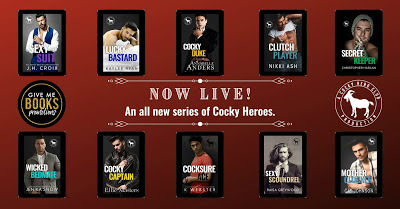
COCKY HERO CLUB
Release Date: May 17, 2020
Vi Keeland and Penelope Ward are excited to bring you the Cocky Hero Club: original works from various authors inspired by Keeland and Ward's New York Times bestselling Cocky Bastard series.
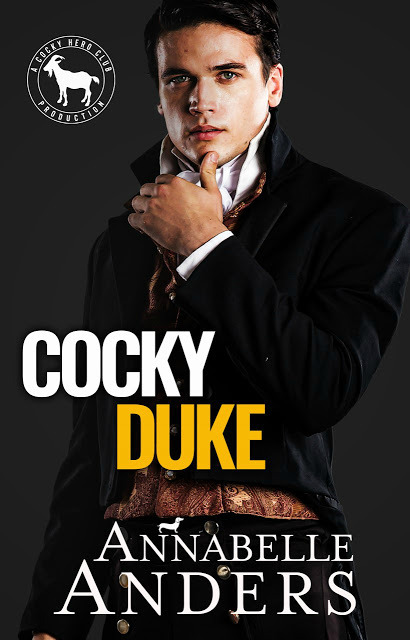
COCKY DUKE
BY ANNABELLE ANDERS
Mrs. Ambrosia Bloomington, now a widow, is ready to start a new life amongst Mayfair elites without the overarching reach of her late husband, Mr. Harrison Bloomington. With her trunks loaded safely onto her own private carriage, she’s ready to face the world as an independent woman in Regency London.
She does not, however, bargain for cocksure Frenchman, Mr. Charles Cochran Bateman coming along and turning her very ordinary journey into the adventure of a lifetime.
She does not bargain for his laughter, his enthusiasm, nor his Joie de vie.
And blast and fiddlesticks, she certainly is not expecting to experience the sparks that charge the air between them.
And, it seems, apparently, neither is he…
ADD TO GOODREADS
Purchase Links
AMAZON US / UK / CA / AU
Free in Kindle Unlimited
ALSO AVAILABLE IN AUDIO
CONNECT WITH
ANNABELLE ANDERS
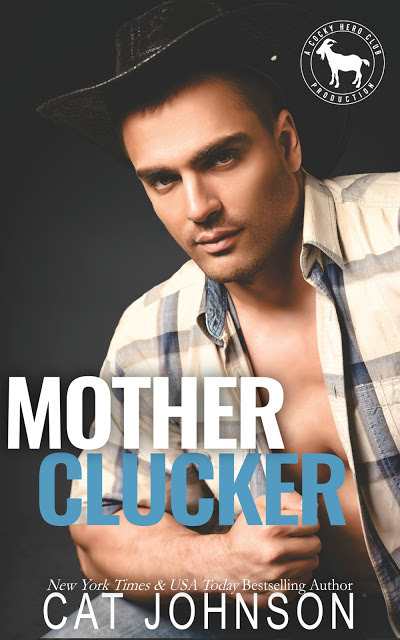
MOTHER CLUCKER
BY CAT JOHNSON
They say opposites attract, but in this case, they might just combust . . .
HEATHER
Hermosa Beach seems to be the place for throwing together unlikely opposites.
My rooster Rowdy and his new crush, Pixy the goat.
Me and the obnoxiously cocky cowboy from Texas . . .
But unlike Rowdy and Pixy, there’s no way I’m going to fall for David Strickland.
Nope. Not gonna happen. I could never be with a man so completely opposed to everything I believe . . . no matter how hot he is.
DAVID
There couldn’t be two people more different than the beautiful little tree hugger and rooster rescuer Heather and me.
We can’t agree on anything, except that we disagree on everything—some times more heatedly than other times. And believe me, things are starting to heat up between us, in more ways than one.
She's the last thing I expected to find at an animal shelter in California. But now I found her, I have no intention of letting her go.
I just have to get her on board with that plan.
ADD TO GOODREADS
Purchase Links
AMAZON US / UK / CA / AU
Free in Kindle Unlimited
ALSO AVAILABLE IN AUDIO
CONNECT WITH CAT JOHNSON
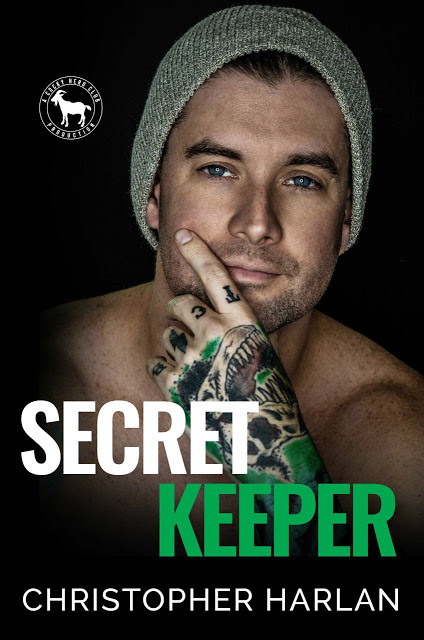
SECRET KEEPER
BY CHRISTOPHER HARLAN
She was the fruit of a forbidden tree, but nothing in this world was going to stop me from tasting her.
My name is Dylan Murphy, and I work for the rich and powerful of an exclusive Manhattan building. Graham Morgan was my first boss, but soon after I was working with some of the most famous entrepreneurs, business moguls, and movie stars in the city. They trusted me because I always followed the cardinal rules:
Never betray secrets. And never, under any circumstance, get personally involved.
I’d never dreamed of violating my professional mantra.
Not until she walked past me.
The look we exchanged that night set my body on fire, and I knew right then and there that no matter the consequences, she was going to be mine. But she was one of them—off limits and out of my league, but she was the kind of woman who I was willing to risk everything for.
I keep other people’s secrets for a living, but the biggest secret of all might be my own.
ADD TO GOODREADS
Purchase Links
AMAZON US / UK / CA / AU
Free in Kindle Unlimited
ALSO AVAILABLE IN AUDIO
CONNECT WITH
CHRISTOPHER HARLAN

COCKY CAPTAIN
BY ELLIE MASTERS
Ex-fighter pilot, Logan Reid, is exactly the kind of man I despise. He’s a cocky jet jock, a former Navy Blue Angel, and full of all the arrogance that comes with being the best of the best.
I’m an ex-Zoomie, an Air Force tanker pilot. The rivalry between our sister services is nothing compared to that between fighter jocks and tanker pilots. We’re bitter rivals and I’m low-man (woman) on the totem pole
The last thing I need is to spend six hours at thirty-five thousand feet locked in a cockpit with the cocky captain. But I have no choice. I’m his co-pilot, and we’re taking the CEO of Montague Enterprises, and his family, on a mini-vacation to the Grand Caymans.
We have three days on the ground before we fly back.
Three long days in paradise and he wants to spend them all with me.
I have a thing for fighter pilots.
It isn’t animosity, exactly, but rather a deep-seated dislike. They get all the glory while the rest of us sit at the butt end of their jokes and wither beneath their ridicule.
I hate fighter pilots. There, I said it. I hate the arrogant pricks with a passion.
But after one look into those magnetic eyes, and the devastating wink which follows, I’m thinking of throwing caution to the wind. What harm can come from some innocent flirting? Besides, it’s not as if my job is at risk.
I’m not prepared for the air to sizzle when he’s close.
I’m not ready for our explosive chemistry when he touches my skin.
I’m not equipped for the fallout when our three days come to an end.
And I never expected to fall in love.
But all good things come to an end.
I wasn’t prepared when I walked away.
And I wasn’t ready for what came next.
He’s arrogant.
He’s cocky.
He’s determined to get what he wants.
And he’s refuses to let this end.
He’s fighting for a forever…with me.
But, I’m not ready for our beginning.
He’s arrogant enough to prove me wrong.
ADD TO GOODREADS
Purchase Links
AMAZON US / UK / CA / AU
Free in Kindle Unlimited
AUDIO COMING SOON
CONNECT WITH ELLIE MASTERS
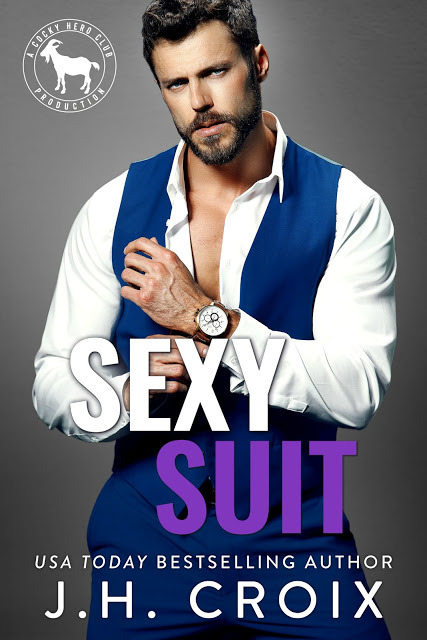
SEXY SUIT
BY J.H. CROIX
When I met Ryan, I might’ve been trying to break into his basement.
It was for a good cause. I swear. Also, my dog broke in first.
Ryan Blake is jaw-dropping handsome, wealthy & cocky. Not quite my type. By some miracle, he doesn’t call the police on me when he catches me trying to rescue my dog. He even fetches a doctor for me. Don’t ask why.
I don’t figure I’ll see him again. Then, I do. Then, he kisses me. Once. Twice. Is three times the charm? To be honest, I swooned at the first kiss.
All swooning aside, we are seriously opposites. I wear cowboy boots and skirts. He wears suits and ties. He’s all New York City. I’m a Southern girl looking for a new start. We even talk at different speeds.
The list of things I don’t expect from Ryan is long. I don’t expect him to think twice about me. I don’t expect him to nearly bring me to my knees with a look. I don’t expect him to be so much more than I ever imagined.
I absolutely don’t expect to fall for him. So hard I’m skidding sideways just to catch my balance.
ADD TO GOODREADS
Purchase Links
AMAZON US / UK / CA / AU
Free in Kindle Unlimited
ALSO AVAILABLE IN AUDIO
CONNECT WITH J.H. CROIX
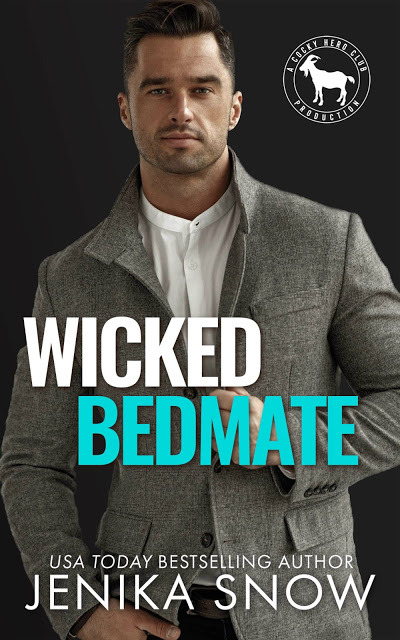
WICKED BEDMATE
BY JENIKA SNOW
Getting fired and humiliated in front of everyone at my newly acquired secretarial job at Morgan Financial Holdings wasn’t how I’d seen my day going.
And then chaos—or maybe luck—ensured.
I was set up on a blind date, shocked that my former boss was giving me a month’s severance, and had the perfect interview lined up.
Maybe things were looking up for me after all.
And although finding a man should have been on the bottom of my to-to list, I couldn’t get Jason—the uber sexy blind date—out of my head. Sexy and confident—or maybe arrogant—he had me yearning for more with just a smoldering look and a smirk of his lips.
But when a night of drinking leads to getting in bed with him and having the wildest, most intense night of my life, I didn’t know if I should ask to see him again, or do the good old walk of shame.
And it’s when I walk into my interview the next day and come face-to-face with my prospective employer that the reality of my situation sinks in.
Because there, sitting across from me with that devilish smile on his face, that knowing expression of what we’d done the night before, is the one and only Jason, my supposedly one-night stand.
Looked like my humiliation wasn’t over just yet.
ADD TO GOODREADS
Purchase Links
AMAZON US / UK / CA / AU
Free in Kindle Unlimited
ALSO AVAILABLE IN AUDIO
CONNECT WITH JENIKA SNOW
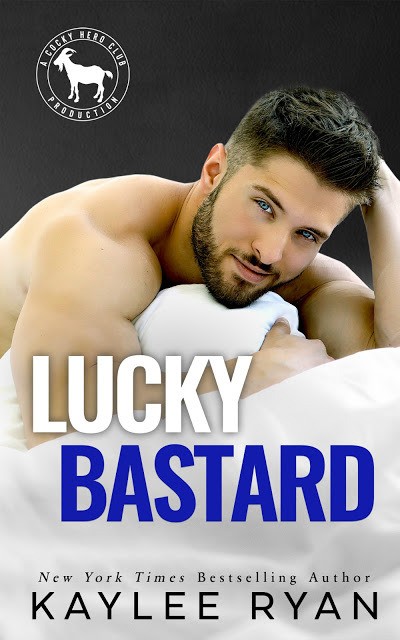
LUCKY BASTARD
BY KAYLEE RYAN
Emma
When my best friend Aubrey asked me to tag along to an event with her, I never could have imagined that it would be the day that my life changed forever.
He’s arrogant and demanding and doesn’t take a hint. Landon Barker, the quarterback for the Hermosa Beach Trojans, is a player on and off of the field. He’s got his sights set on me as his next play, but I see right through him. Aubrey says I’m overreacting, that I should give him a chance. What she doesn’t realize is men like Landon don’t fall for the girl next door. That’s not reality. She got her fairytale, although it was a long road. Not all of us are that lucky.
Landon
She’s a friend of our new kicking coach’s wife. When I ask Chance for her number, he tells me I have to find a way to get it myself.
Nothing when it comes to Emma has been easy. She’s the first woman ever to turn me down, and that won’t do. However, as time passes, it’s about more than that. It’s about her smile, her laugh, and just spending time with her. She thinks I’m a player, and she’s right. What she doesn’t know is that I play to win, and her heart is the ultimate trophy.
ADD TO GOODREADS
Purchase Links
AMAZON US / UK / CA / AU
Free in Kindle Unlimited
ALSO AVAILABLE IN AUDIO
CONNECT WITH KAYLEE RYAN

COCKSURE ACE
BY K WEBSTER
I’m a fighter.
At least that’s what my daddy always told me.
It’s in our blood.
Hard work, hustle, and a little Hennessey is the Reid motto.
He taught me to fight for everything I wanted in life.
Take down those who threaten the dream.
My dream is to marry the perfect man.
That man is my father’s best friend and I won’t stop until I have him.
And at Daddy’s wedding in Costa Rica, I plan to make that dream finally come true.
Then, my life will be smooth sailing.
Until a chance flight with an arrogant pilot throws me off course.
Literally.
Camilo’s decisions affect my future, and I can’t allow anything—not even a cocksure, ridiculously hot idiot—to stand in my way.
Problem is, he fights back.
Every battle I’ve won in life, he shoots down and exposes me for the fraud I am.
Trapped in paradise with my devilishly handsome nemesis seems like one of the seven circles of Hell…and, boy, is it getting hot around here.
He’ll strip me of my armor.
Remind me of my past.
Force me to rethink my future.
And help me live in the moment.
Will he steal my heart too?
One thing’s for sure.
This girl won’t give up without a fight.
ADD TO GOODREADS
Purchase Links
AMAZON US / UK / CA / AU
Free in Kindle Unlimited
ALSO AVAILABLE IN AUDIO
CONNECT WITH K WEBSTER
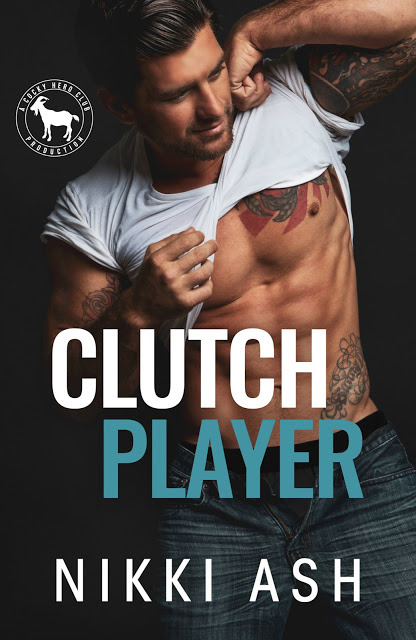
CLUTCH PLAYER
BY NIKKI ASH
Harper
I fell in love when I was sixteen. Landon was my entire world and I thought he would be my forever. But I was young and dumb, and with one error in judgement, I destroyed any chance of a future we could’ve had together, along with our hearts.
Twelve years later and I’m going through the motions of life, but not actually living. Which is why I let my friends, Bridget and Simon, set me up on a blind date. Turns out, it’s not so blind after all. Because the man sitting in front of me is the same man who’s held onto my heart all these years.
Landon
They call me a Clutch Player because I’m good under pressure and quick on my feet. I was also quick to fall in love. The first time it was with baseball, the second was with Harper. And for a short time I had them both.
Until I lost Harper and all I had left was baseball.
For years, I focused on my career. I had accepted that baseball was my one true love.
Until I saw her again. I never imagined we’d ever get a second chance, but now that she’s sitting right across from me, I know there’s no way in hell I’m going to let her go again.
ADD TO GOODREADS
Purchase Links
AMAZON US / UK / CA / AU
Free in Kindle Unlimited
ALSO AVAILABLE IN AUDIO
CONNECT WITH NIKKI ASH

SEXY SCOUNDREL
BY RAISA GREYWOOD
Carlina Perez is in way over her head. Unexpectedly jobless and fostering an exotic pet with an insatiable appetite, this pastry chef needs a new gig faster than she can whip up a batch of scones. But when she’s tapped to serve as the personal chef to a haughty tabloid regular, she only considers the job out of sheer desperation. After all, Giorgio Acardi may be filthy rich and intoxicatingly handsome, but he’s also a first class scoundrel.
Giorgio Acardi has it all: money, fame, an endless string of beautiful companions, and the respect of his colleagues and rivals. From the outside looking in, his life is perfect. So perfect, in fact, that he’s even got his eye on a new personal chef. She’s talented and gorgeous, and it shouldn’t make a difference whether she hates him or not as long as she does the job. But there’s something about Carlina that Giorgio just can’t resist, and he hasn’t enjoyed success by backing down from a challenge.
ADD TO GOODREADS
Purchase Links
AMAZON US / UK / CA / AU
Free in Kindle Unlimited
ALSO AVAILABLE IN AUDIO
CONNECT WITH
RAISA GREYWOOD
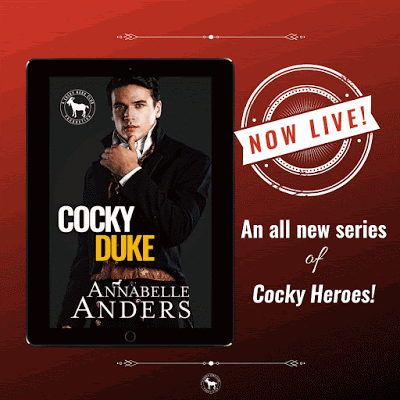
Cocky Hero Club

WEBSITE
FACEBOOK PAGE
FACEBOOK GROUP
INSTAGRAM
TWITTER
AMAZON
AUDIBLE
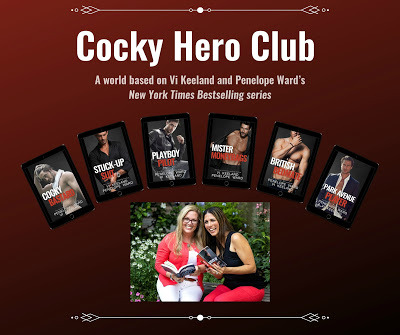
1 note
·
View note
Text
youtube
Watch the 2024 American Climate Leadership Awards for High School Students now: https://youtu.be/5C-bb9PoRLc
The recording is now available on ecoAmerica's YouTube channel for viewers to be inspired by student climate leaders! Join Aishah-Nyeta Brown & Jerome Foster II and be inspired by student climate leaders as we recognize the High School Student finalists. Watch now to find out which student received the $25,000 grand prize and top recognition!
#ACLA24#ACLA24HighSchoolStudents#youtube#youtube video#climate leaders#climate solutions#climate action#climate and environment#climate#climate change#climate and health#climate blog#climate justice#climate news#weather and climate#environmental news#environment#environmental awareness#environment and health#environmental#environmental issues#environmental education#environmental justice#environmental protection#environmental health#high school students#high school#youth#youth of america#school
14K notes
·
View notes
Text
Halloween Crafts - Silhouette Ghost
Google it for exact date of the particular year you want to know, eg. "Chinese New Year 2010". Travel to Kuching two weeks in front of the Chinese New Year is the best time for of which you see the neighbors getting ready for your Chinese New Year festival. People in Kuching is usually busy shopping for Chinese New Year goods and goodies during this time-frame. On the Eve of Chinese New Year, locals will do their final shopping before noon, and after 2pm normally the Kuching is more like a dead your city. Shops closed, businesses ended, everyone is the particular home getting ready for their reunion meal. If you're still in Kuching on this day, the only placed you can have your dinner is possibly the fast food restaurant for example KFC or McDonald.
For most people, if they could afford one, they will hire an authority ghost writer in a heartbeat. Selection way to be sure a great book as your final option? But let's face it, quite a few people can't afford $100,000 to $250,000 much more for such services. Still, they want the best, and desire their book to surely bestseller. But, of programme. It doesn't make any sense to want anything a lot fewer. Why have a book if it isn't going become the best it may perhaps be?
The job description as being Ghostbusters involves trapping mischievous ghosts, spirits and poltergeists as primary source of greenbacks. The team eventually achieved popularity since they were the only 1 capable of dealing however ghosts that are increasing in number in the city. They stumbled upon a gateway to another dimension that release evil to area. The Ghostbusters are as a result of task conserve the New york.
The NLP technique for "exercising the muscle", or taking proper the Ghost event from the past is to merely place yourself in time and host to the event in question. Then observe what exactly happened in that moment. Imagine you are watching the wedding happen from your perspectives of four years old cameras connected to the four corners of the ceiling the actual space you were in at that time. Imagine viewing the events coming from the perspective of 1 camera modest. Just observe. Don't judge, do not label the events. Just observe. Now change the aim of view to another location camera, and thus forth. Take time, and set yourself assistance programs were that time thoroughly.
Ghost of Christmas Shopping- Gift shopping during the holiday is always stressful. You wish to get everyone the perfect gift, but you don't to help break the actual. Plan your gift budget ahead of the holidays, and create list among the gifts that you really want to buy each people. This way, you will be less tempted to purchase those impulsive gifts that upwards costing you more than you anticipated. Another good tip for holiday shopping is shopping e-commerce.
What do ghost trains look that? Phantom or ghost trains are the size of real train engines. Some of them are quiet, whilst make making use of train noises, such as clanks and whistles. A wide variety of the trains are totally empty, whilst have ghosts and other astral entities as individuals.
One of the most compelling stories I heard was from a caretaker in Colonial Park Cemetery. I was really a newcomer to Savannah and had no idea that the city of Savannah would not allow ghost tours to inform ghost stories inside of public cemeteries. At time it didn't seem strictly enforced method it at present but even still, unique caretaker laughed and said even he wasn't allowed to act as he had any know-how about ghosts supposedly haunting this ancient resting place, despite of the truth that that entire books are written about supernatural sightings in Colonial Park Graveyard. In fact, the caretaker noticed me suspiciously when 'the question' was basically put to him, as if I may be a city employee testing him.
There absolutely no shortage of people interested in the paranormal and if you along with your group thrives on the thrilling and chilling, you'll without doubt start making haunted weekends a regular group test dive.
https://benniehyler.weebly.com/
1 note
·
View note
Photo
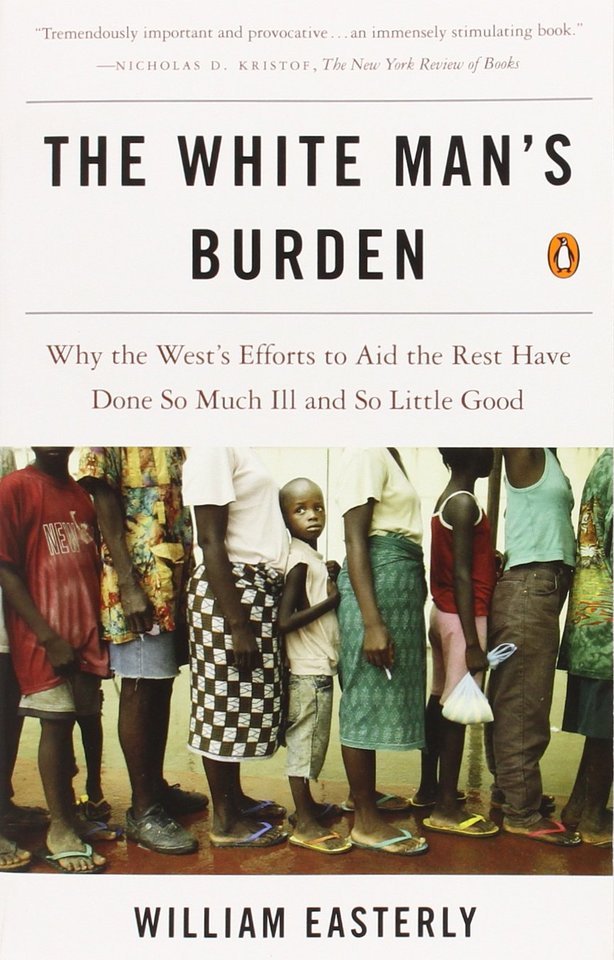
In 2011, Eric Ries made a big splash in Silicon Valley with his book “The Lean Startup: How Today's Entrepreneurs Use Continuous Innovation to Create Radically Successful Businesses.” He defines “startup” rather loosely (“an organization dedicated to creating something new under conditions of extreme uncertainty”) and encourages organizations of all sizes to avoid creating elaborate business plans and instead work “to test their vision continuously, to adapt and adjust…” This is almost precisely the same argument made by NYU economist William Easterly in his controversial 2007 bestseller, “The White Man’s Burden: Why West’s Efforts to Aid the Rest Have Done So Much Ill and So Little Good,” which is a direct assault on traditional development economics, the very field he has dedicated his life to. For the past half century, he argues, development economics has been beholden to a “legend”, a legend he once very much believed in: That poverty traps constrain impoverished nations and these poverty traps can be overcome with a “Big Push” – massive Western foreign aid packages and tops-down plans for eradicating poverty, disease, and illiteracy, while promoting various forms of economic growth.
This attempt at a big fix – massive programs of aid with lofty goals but little accountability – has been the world of classically trained development economists, who he derisively dubs “The Planners.” They think they have the answers, he says, and rhetorically they have the advantage because they promise great things, such as “the end of poverty.” Reality, however, is much different according Easterly. There are no easy answers. “The only Big Plan is to discontinue the Big Plans,” he says. “The only Big Answer is that there is no Big Answer.” The promises of the Planners, such as his professional rival Jeffrey Sachs, “shows all the pretensions of utopian social engineering,” he writes rather caustically. Yet they flourish in a world without feedback or accountability, and where big plans and big promises play well with politicians and celebrities. Nobody (especially those with no direction connection to the problems) wants to promote small but achievable objectives. They want “to do something” – and do it big. Easterly claims that the West, perhaps innocently and unintentionally, has written itself into the hero role in saving the uncivilized world. Indeed, he writes, “…the development expert…is the heir to the missionary and the colonial officer.”
In contrast to the Planners, the author encourages those who want to help to “think small”: the little answers that work and that can make a material, if not revolutionary, difference on the lives of the impoverished. He calls these people, mostly locally-based activists, “The Searchers.” They possess an entrepreneurial and experimentation mindset, and naturally embrace the iterative testing model promoted by Ries in “The Lean Start Up.” They get regular feedback from the poor they serve and are held accountable for their work. They don’t promise to solve world hunger, but they often make incremental yet substantive impact where they work. “The dynamism of the poor at the bottom,” he writes, “has much more potential than plans at the top.”
The book is broken into four parts, each of varying interest and value. The first part, “Why planners cannot bring prosperity” is dedicated to undermining the theory of the “Big Push,” which Easterly writes is demonstrably false. He claims that “Statistically, countries with high aid are no more likely to take off than are those with low aid – contrary to the Big Push idea.” Likewise, attempts to promote free markets from the top down, as is often the case with IMF and World Bank-led structural reforms, ambitious schemes to promote capitalist growth that Easterly admittedly once believed in wholeheartedly, are doomed to failure. The same goes for top down efforts to promote democracy, although he sees democracy as important because it can supply the two things most important for meaningful reform: feedback and accountability.
In Part two, “Acting out the burden,” Easterly accentuates “The tragedy of poverty is that the poorest people in the world have no money or political power to motivate Searchers to address their desperate needs, while the rich can use their money and power through well-developed markets and accountable bureaucracies to address theirs.” He highlights the insanity of the international development industry, which he likes to repeat has pumped $2.3 trillion (yes, “trillion”) into the developing world since the end of World War II – and for what? He says. He cites Tanzania as a typical case study in development economics absurdity, as that country was forced to produce 2,400 reports and host over 1,000 donor visits in a single year. The author hammers home on his two main themes of feedback and accountability, noting what little input the poor actually have on the aid that they receive and that the Planners at the top are usually divorced from reality on the ground. Easterly writes that development aid is a classic “principle/agent” relationship, where the principle is a rich donor country and the agent is the aid agency. The actual target, the poor, are nowhere in the system of response. The principle wants to see big results, and yet is in no position to check on the work and achievements. The agents are thus cloaked in a sort of invisibility – and it’s under this invisibility, the author claims, that the Planners take over. The Planners thrive in the dark, Easterly says; the Searchers in direct light. The Planners benefit from the fact that there are so many aid agencies, all with very similar missions, all supposedly coordinating efforts, yet no single entity is ultimately accountable for achieving results. The smaller and more focused an NGO’s mandate, the better. Or, as Easterly complains, “If the aid business were not so beguiled by utopian visions, it could address a more realistic set of problems for which it had evidence of a workable solution.”
If the aid agencies have failed because their mandates are too broad, what about the IMF, which has the relatively narrow mission of promoting “trade and currency stability”? Easterly argues that the IMF suffers from poor data, a misplaced one-size-fits-all approach, and is all too willing to forgive loans. What should be done? Simple, Easterly says, focus the IMF on emerging markets only and reserve the true bottom billion for aid agencies, thus removing the politically unpopular conditionality that has marked IMF interventions over the past several decades.
Part 3, “The White Man’s Army,” is lengthy and the least insightful in the book. Easterly’s core message, as told through vignettes about Pakistan, the Congo, Sudan, India, and Palestine/Israel is that Western meddling with the Rest has been damaging, whether it was colonialism, de-colonialism or well-intentioned aid intervention. He further argues that US efforts to restructure societies via military force, either directly or through proxies, has all the hallmarks of utopian planner mentality, as suggested by case studies on Nicaragua, Angola and Haiti. In other words, neo-conservatives are the Right wing on “The Planner continuum”, with idealists like Sachs on the Left.
In Part 4, “The Future,” Easterly argues that 60 years of Planners in control of the economic development agenda is enough. It is time to drop the utopian goals of eradicating poverty and transforming governments. “The Big Goals of the Big Plan distract everyone’s attention…” he writes. “The rich-country public has to live with making poor people’s lives better in a few concrete ways that aid agencies can actually achieve.” Even worse, he writes, “The Planners’ response to failure of previous interventions [has been] to do even more intensive and comprehensive interventions.” It is time to empower the Searchers, those who probe and experiment their way to success with modest efforts to make individuals better off, even if only marginally.
As far as the aid agencies are concerned, Easterly recommends: 1) end the system of collective responsibility for multiple goals; 2) and instead encourage individual accountability for individual tasks; 3) promote aid agencies to specialize rather than having many all pursue significant goals; and 4) employ independent auditors of aid activities. The central theme developed by the author throughout this book is that aid agencies need to be constantly experimenting and searching for modest interventions that work. And they must employ more on-the-ground learning with deeply embedded staff. Thus, Easterly encourages the idea of “development vouchers” that would empower local communities to get the aid they most need from the agencies that are most effective. Theoretically, those agencies that either don’t deliver value and/or don’t deliver as promised would be put out of business. It’s a compelling idea that Easterly nevertheless stresses is no panacea.
Easterly writes with a certain punch, which I’m sure ruffled more than a few feathers not only with his arguments but with his style, which can be cynical and snarky. For instance, when looking to catalog the redeeming benefits of U.S. interventions over the past several decades, he cites an “Explosion of Vietnamese restaurants in the United States” for Vietnam, “Black Hawk Down was a great book and movie” for Somalia, and “Salvadoran refugees became cheap housekeepers of desperate housewives” for El Salvador. He goes on to characterize U.S. Angolan ally Jonas Savimbi as “to democracy what Paris Hilton is to chastity.” Amusing commentary, for sure, although perhaps a bit misguided given the gravity of the subject matter.
In closing, Easterly makes a compelling case to “go small” with development efforts and always seek feedback and accountability. He may not be on the Christmas card list of Bono and Angelina Jolie, but I’m afraid he is much more insightful and directionally correct than their hero, Jeffrey Sachs.
25 notes
·
View notes
Link
At the dawn of the 1970s, Mort Garson installed a Moog synthesizer in his Laurel Canyon home studio. In those early days of Moogs, the modular synthesizer was a massive piece of equipment — a dizzying wall of knobs and inputs. "It looked like a switchboard from the 1940s," Garson's daughter Day Darmet remembers. "It was just huge, with all these wires. My mom and I thought that he had really lost it."
Garson self-released the album Mother Earth's Plantasia in 1976. He used his Moog to create the suitably groovy vibe of each of its 10 instrumental tracks. "Concerto for Philodendron & Pothos" twinkles like the first stars to emerge after a sunset. "Symphony for a Spider Plant" bubbles with wonder. "A Mellow Mood for Maidenhair" bears traces of a psychedelic awakening. But the stated audience of this strange but soothing music was not people. It was for plants.
Befitting its esoteric origins, Plantasia was only sold at the Mother Earth plant store on Melrose Avenue in Los Angeles, or it came for free if you ordered a Simmons mattress from Sears. Plantasia's cheeky liner notes were written by Mother Earth's owners, Lynn and Joel Rapp, who were members of the TV industry before they turned to selling ferns and ficuses. In the description for the title song, they told an apocryphal tale: "[A] professor took three identical sets of plants and put them in three rooms under identical growing conditions. In the first room, he played only classical music and those plants thrived; in the second room, he played only rock music and those plants thrived; in the third room he played only the news. Those plants died. Let that one grow on you while you listen ... ."
...
Plantasia arrived three years after the release of Peter Tompkins and Christopher Bird's book The Secret Life of Plants, which appeared on The New York Times' bestselling nonfiction list amongst titles like The Joy of Sex and How to Be Your Own Best Friend. In The Secret Life of Plants, Tompkins and Bird recounted experiments conducted around the planet that supposedly proved that plants were far more complex and cosmically attuned beings than most humans imagined. One of its central claims was that the health and productivity of plants could be affected not only by playing music for them, but by what kind of music you played for them.
With this notion vibrating through the consciousness, artists began making compositions designed specifically for plants, in tribute to plants, or in collaboration with plants. Prolific French composer Roger Roger released the electronic-classical hybrid De la Musique et des Secrets pour Enchanter vos Plantes (Music and Secrets to Enchant Your Plants). Even Stevie Wonder embraced these ideas at the end of his transcendent run of albums in the 1970s, resulting in Journey Through the Secret Life of Plants, his double-disc soundtrack for the documentary film version of Tompkins and Bird's book.
...
in recent years, a new generation of artists, many with connections to the ambient electronic music community, have embraced the idea of making music in highly specialized ways to foster a connection with plants. Among them is Kurt Attard of Australia's Brainwave Power Music, whose YouTube channel has over half a million subscribers. He used "binaural beats and isochronic tones" for several videos aimed towards plants; combined they currently have over 800 thousand plays. In Germany, B. Ashra's Music for Growing was made specifically for nurturing hemp plants by using what he calls THC's "molecular frequency" of 10.77 Hz. David Edren of Belgium was inspired directly by Garson's Plantasia when he made Music for Mimosa Pudica & Codariocalyx, a sprightly minimalist project dedicated to a pair of houseplants he kept in his home. "The album invoked an extra layer of focus in my life and work," says Edren, "which is gentleness and positiveness towards all beings around us."
Others have figured out how to get the plants themselves to create new sounds. Data Garden was started as a zero-waste record label, but its founders soon realized they were generating the most interest with the installations they would set up at festivals and museums where plants were connected to custom-made hardware to generate harmonious tones. This Venice, Los Angeles-based duo of Joe Patitucci and Jon Shapiro developed (and sell) a device called the MIDI Sprout that translates plants' electrical impulses into musical notes.
6 notes
·
View notes
Photo
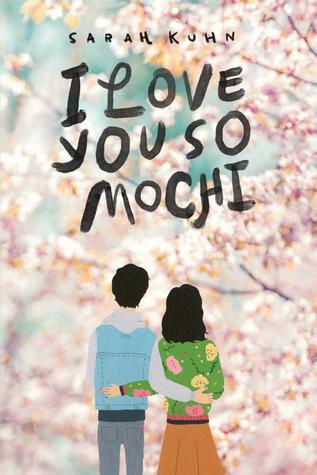
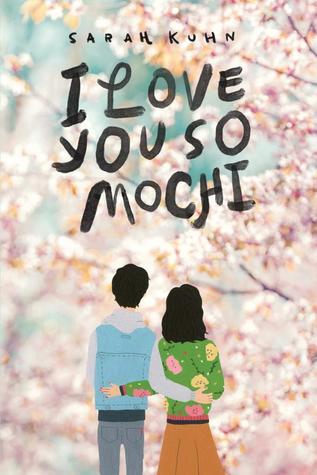
Everyone, please welcome Sarah Kuhn to Rich in Color! Sarah’s first YA novel, I LOVE YOU SO MOCHI, is out today, and we’re thrilled to have Sarah here to talk about it. If you’re looking to add a cute contemporary romance to your summer TBR list, start here!
Kimi Nakamura loves a good fashion statement. She’s obsessed with transforming everyday ephemera into Kimi Originals: bold outfits that make her and her friends feel brave, fabulous, and like the Ultimate versions of themselves. But her mother sees this as a distraction from working on her portfolio paintings for the prestigious fine art academy where she’s been accepted for college. So when a surprise letter comes in the mail from Kimi’s estranged grandparents, inviting her to Kyoto for spring break, she seizes the opportunity to get away from the disaster of her life.
When she arrives in Japan, she loses herself in Kyoto’s outdoor markets, art installations, and cherry blossom festival–and meets Akira, a cute med student who moonlights as a costumed mochi mascot. What begins as a trip to escape her problems quickly becomes a way for Kimi to learn more about the mother she left behind, and to figure out where her own heart lies.
I LOVE YOU SO MOCHI is your first YA novel. What were you most excited about writing for teens?
I love writing characters experiencing firsts, those amazing moments that give you that tingly sense of possibility, that feeling of your whole world opening up — first kisses, first trips to another country, first time facing a total existential crisis about your life. To be fair, a lot of my adult characters experience many firsts as well (as do I as an actual supposedly adult person)! But Kimi in particular gets to have maybe the most firsts of any character I’ve ever written — she’s someone who’s initially kind of scared of big new experiences, so writing her having all of those experiences and realizing that so much excitement and wonder can come out of them was a total joy. And maybe a good lesson/reminder for my adult self.
Kimi sounds like fun! Tell us more about her fashionista ways and her friends.
She is fun! In my totally unbiased opinion. It’s no secret that I’m obsessed with clothes and fashion — I love bright colors and patterns and experimenting with putting different outfit combinations together. Basically, I still worship at the shrine of my original idol, Claudia Kishi from The Baby-Sitters Club. But I’m really bad at sewing, mending, or anything that requires patience, so I thought it would be fun to create a character who shares my love of fashion but is also really excellent at sewing and makes all her own outfits. She’s kind of like a fantasy version of myself, with an added sewing superpower. And then of course she has her own Girl Gang, because all my books have Girl Gangs — her best friends are Atsuko, who writes a dating advice column (even though Atsuko is actually very cynical about love in all its forms), and Bex, who is dreamy and idealistic and wears cute dresses with mermaids on them. They’re a fun trio.
It sounds like Kimi and her (extended) family are having some difficulties in I LOVE YOU SO MOCHI. Can you tell us more about Kimi and her relationships with her mom and grandparents?
Kimi is extremely close with her mom, who came to the States from Japan for college and ended up staying there when she fell in love with Kimi’s dad, who is fourth generation Japanese American. Her relationship with her mom mirrors the one I had with mine — her mom knows her better than anyone and they kind of love each other more than anyone…but that also means they have the potential to hurt each other more than anyone. The grandparents in the book are Kimi’s mom’s parents — Kimi’s never met them because they disapproved of Mom’s choice to stay in the States. But they invite Kimi to visit them in Kyoto over Spring Break and after a huge fight with Mom, Kimi accepts. And as she gets to know her grandparents, she realizes there’s a lot more to her mother’s story than she realized. I really loved writing about three generations of powerful Japanese/Japanese American women. I wanted their relationships with each other to be prickly and not always perfect, but with so much love underneath.
I went to Kyoto a few years ago and loved it. Why did you decide to set I LOVE YOU SO MOCHI there?
Kyoto contains so many beautiful sights I wanted to write about: Fushimi Inari Taisha, the amazing shrine with those bright red-orange torii gates; the Arashiyama bamboo grove; Maruyama Park with all those glorious cherry blossoms. All of these were things I thought would inspire Kimi as an artist and budding fashion designer. I’d also read somewhere that Kyoto is a place for people who are passionate about making things, and that seemed perfect for Kimi and her grandmother, who also loves sewing and creating clothes. I loved including more obscure locations that got to the heart of that “making things” idea, like Misuyabari, this tiny, family-run needle shop that’s like 400 years old and sells these incredible handmade needles and sewing supplies. Oh, and finally, Kyoto has a pug cafe — which ended up being a very necessary location.
Can you introduce us to Akira and tell us a little bit about what draws Kimi to him?
Akira is an aspiring med student who moonlights as a costumed mochi mascot at his uncle’s mochi stand. Kimi meets him because he’s doing this ridiculous dance, trying to attract customers, and she laughs too loud and he gets distracted and falls over. It’s probably the cutest meet-cute I’ve written. At first, let’s be honest, she’s drawn to him because he’s hot. But he also has this interesting quality about him that’s very attractive to her — he’s a weird combination of seriousness and goofiness, like he never gives anything less than 100 percent, but he also has a tendency toward dorky jokes that surprise her and make her laugh. Also, he takes her to Japanese McDonald’s, which is very romantic.
What 2019 YA books by or about people of color or people from First/Native Nations are you looking forward to reading?
So many! At the moment, I’m super stoked for OUR WAYWARD FATE by Gloria Chao — AMERICAN PANDA made me die both laughing and crying, so I can’t wait to read her new one. And WICKED FOX by Kat Cho — I’m always hungry for contemporary fantasy/romance starring women of color and this sounds absolutely perfect.
Is there anything else you’d like to tell us about I LOVE YOU SO MOCHI?
I already mentioned the pug cafe, right? I mean, there are a lot of cute animals and delicious food. Be prepared for that going in!
Thank you for stopping by, Sarah! We’re looking forward to your book.
Sarah Kuhn is the author of the popular Heroine Complex novels—a series starring Asian American superheroines. The first book is a Locus bestseller, an RT Reviewers’ Choice Award nominee, and one of the Barnes & Noble Sci-Fi & Fantasy Blog’s Best Books of 2016. Her YA debut, the Japan-set romantic comedy I Love You So Mochi, comes out in June 2019. Additionally, she is currently working on a graphic novel about Batgirl Cassandra Cain for DC Comics. Sarah also wrote “The Ruby Equation” for the Eisner-nominated comics anthology Fresh Romance and the novella One Con Glory, which is in development as a feature film. Other projects include a comic book continuation of the cult classic movie Clueless, a series of Barbie comics, and a story in the recent Jem and the Holograms anthology series Dimensions. Additionally, Sarah is a finalist for the John W. Campbell Award for Best New Writer. Her non-fiction has appeared in The Toast, The Mary Sue, Uncanny Magazine, AngryAsianMan.com, IGN.com, The Hollywood Reporter, StarTrek.com, and the Hugo-nominated anthology Chicks Dig Comics.
#sarah kuhn#i love you so mochi#Interviews#WeNeedDiverseBooks#young adult books#contemporary#romance
12 notes
·
View notes
Text
youtube
Watch the American Climate Leadership Awards 2024 now: https://youtu.be/bWiW4Rp8vF0?feature=shared
The American Climate Leadership Awards 2024 broadcast recording is now available on ecoAmerica's YouTube channel for viewers to be inspired by active climate leaders. Watch to find out which finalist received the $50,000 grand prize! Hosted by Vanessa Hauc and featuring Bill McKibben and Katharine Hayhoe!
#ACLA24#ACLA24Leaders#youtube#youtube video#climate leaders#climate solutions#climate action#climate and environment#climate#climate change#climate and health#climate blog#climate justice#climate news#weather and climate#environmental news#environment#environmental awareness#environment and health#environmental#environmental issues#environmental justice#environment protection#environmental health#Youtube
14K notes
·
View notes